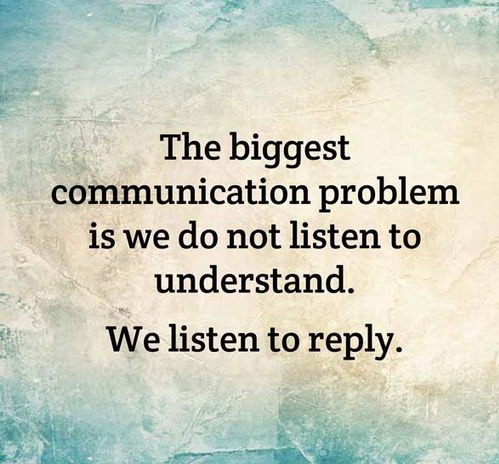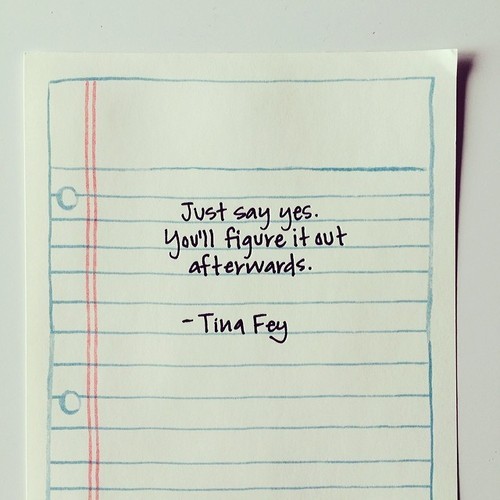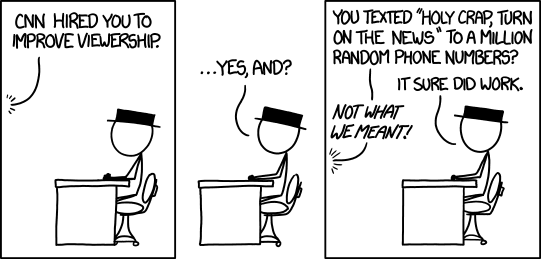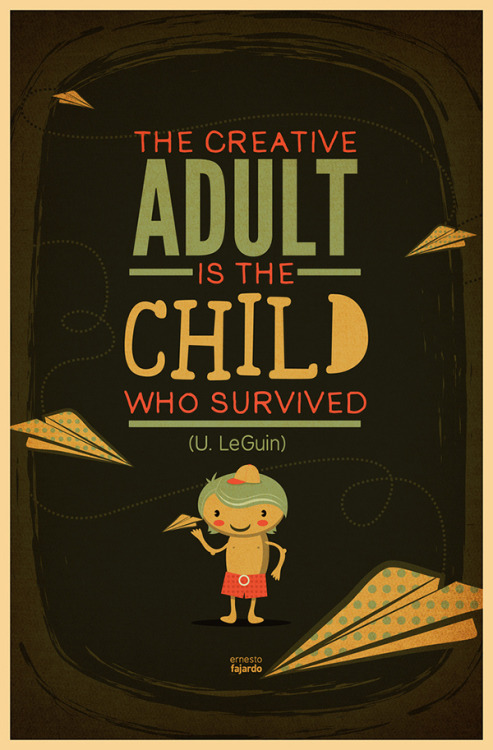
Shared posts
Politics and the Sociopath
This is the second installment of Lighthouse, my monthly column for BLink, a supplement of the Hindu Business Line.
‘For those of us climbing to the top of the food chain, there can be no mercy. There is but one rule: Hunt or be hunted.’ – Frank Underwood, House of Cards.
I have often wondered, what kind of person wants to be a politician? Growing up, we gravitate towards our future professions on the basis of interests or aptitude or, often, just circumstances. What we are drawn towards depends on the kind of person we are: someone bad at maths in unlikely to turn to engineering or investment banking, just as an introverted geek is probably going to avoid a career in news broadcasting. So what are you like, then, if you aspire to be a politician and actually end up being good at it?
First up, the stated reasons are mostly bunkum: aspiring politicians want to serve the community or make the world a better place only as much as Miss India contestants want to be like Mother Teresa. No, with few exceptions, people are driven to get into politics by just one instinct: the lust for power. It’s primal, it’s hardwired into us—the chief of the tribe has the best chance of propagating his genes—but there are many who want what only a few will get, and the road to the top is always bloody. Those who navigate this road successfully need to possess ambition, charm and ruthlessness in equal measure.
The kind of person best suited to navigating this road is a sociopath. A sociopath—the term is also used interchangeably with ‘psychopath’—is essentially a person who feels no empathy towards his fellow humans, a condition that is innate and originates in the brain. (Damage to a part of the brain called the amygdala is the most likely culprit.) The psychologist Robert Hare defined sociopaths as “intraspecies predators who use charm, manipulation, intimidation, and violence to control others and to satisfy their own selfish needs. Lacking in conscience and in feelings for others, they cold-bloodedly take what they want and do as they please, violating social norms and expectations without the slightest sense of guilt or regret.”
Needless to say, sociopaths are therefore cut out for some professions more than others. While sociopaths comprise upto 4% of the general population, they are estimated to make up over 20% of the prison population in the US, which is what you’d expect from people who lack any conscience. It has been theorized that they are also over-represented among trial lawyers, bankers and, you guessed it, among politicians.
A study published last year analyzed the 42 US presidents leading up to George W Bush and found a high degree of sociopathy in their personalities. But this is not necessarily a negative assessment. As Scott Lilienfeld, a psychologist who worked on the study, said, “Certain psychopathic traits may be like a double-edged sword. Fearless dominance, for example, may contribute to reckless criminality and violence, or to skillful leadership in the face of a crisis.” Indeed, over a century ago the philosopher and psychologist William James had said, “When superior intellect and a psychopathic temperament coalesce [...] in the same individual, we have the best possible conditions for the kind of effective genius that gets into the biographical dictionaries.” Sociopaths can aquire power more easily than others—what they do with this power is a different matter entirely.
While politics is the natural habitat of the sociopath, political systems differ across the world. Sociopaths are more likely to dominate politics in those countries where the state has more power and less accountability than it should. I would think, therefore, that there is a greater likelihood of finding a sociopathic politician in India than, say, in Scandanavia. Indeed, the disdain with which Indians regard politics and politicians in general indicates that there is something to this. In the general population, one in 25 people is a sociopath; list down the names of 25 Indian politicians and see, according to you, how many fit the bill.
There are exceptions, of course. In my view, the following gents don’t seem to be sociopaths: the hapless Manmohan Singh, an accidental politician; Rahul Gandhi, a buffoon trying to run the family business because he’s good at nothing else (or simply because it’s there); Arvind Kejriwal, a sanctimonious and misguided activist who took an unusual route into politics. But one man who seems to fit the bill, and who even his opponents would admit is remarkably talented as a politician, is Narendra Modi. To me, he seems to be a textbook sociopath, who believes in nothing, has no principles, and will simply do whatever it takes to get to power and stay there.
If you agree with my assessment, consider the implications: if Modi is indeed a sociopath, all the things you like or loathe about him may be misplaced. He may be neither a bigoted Muslim-hater nor a champion of development and growth, but simply an opportunistic politician pandering to different constituencies at different times. (On one side, the electorate of Gujarat, with whom the perception that he engineered the riots, whether or not he did, brought him much support. On the other side, the small business owners and industrialists who fund him, and spread the impression that he supports free markets while his actions reveal him, so far, to be no more than a crony capitalist.) Every aspect of his public image could simply be carefully constructed to get him political gain, and his actions if he becomes prime minister would be tailored around the constraints and opportunities of his political environment, which will be different at the national level from what they have been in Gujarat or on the campaign trail.
All this, I must clarify, is neither a defence nor a condemnation of Modi. Being a sociopath is biological destiny, just as being left-handed or gay or allergic to coriander is, but how you are born should be neither a reason to condemn you nor an exculpation for your actions. Men should be judged by what they do, not by what they are—and it is not the purpose of this column to examine whether Modi is a genocider or a developmental messiah, both of which are simplistic narratives anyway. Just consider this: If Modi is indeed a sociopath, whose public persona is constructed around whatever will get him to power in this democracy of ours, then whatever you like or dislike about him reveals less about him and more about the state of India itself. When India looks at Narendra Modi, it looks into a mirror. What you are is what you get.
* * *
Previously on Lighthouse:
The India Uncut Blog © 2010 Amit Varma. All rights reserved.
Follow me on Twitter.
Deconstructing Modi Part 4
[Previous part: Part 3]
In my last post on this topic, admittedly many eons ago, I had finished with a reference to Congress as Modi’s biggest polling agent.
Much of Modi’s support outside the BJP’s core base, I would suppose all but the most committed of Modi fanboys would accept this, stems from the performance (and lack of it) of the Congress-UPA government. Only those who have been given a Padmabhushan by this government or hope to be given one in the future would defend its inglorious legacy of slush and paralysis and so I would presume there is no need to put the history of the UPA under the scanner here. The UPA has been Rohit Sharma in New Zealand and most of us can agree with that.
The problem with the Congress is so basic, so deep is the cancer bonded with its DNA, that there is nothing much it can do about it in the near future. Which makes the job so much easier for Modi.
The Congress, ever since Sonia Gandhi firmly took over its reins and relegated reformers like Narasimha Rao to the dustbin of history, has become a party with one single obsession. Namely to perpetuate the Gandhi dynasty. Rahul Gandhi poses the greatest challenge to this, as his public pronouncements and singular ability to shirk responsibility, notwithstanding an army of cheerleaders throwing legs and waving their pompoms, has made him an object of more or less universal ridicule. If there has been something worse than the sight of Rahul Gandhi (he admittedly is funny, in an unintentionally subversive way) trying to act statesmanly, it is the naked display of sycophancy that goes on in parallel, almost like a real-life enactment of the fable of the Emperor with No Clothes (remember how the courtiers keep applauding the king’s excellent clothes even though he is stark naked). In the 70s when people were more enthralled by the Gandhis and in general more respectful of royal authority, this kind of tomfoolery might have had some political impact. Now this just makes people roll their eyes. Of course, such is the web of power inside the Congress, and props to Sonia Gandhi for that, that no single Congress leader, no matter how much more suitable he might be than Rahul Gandhi as a leader, will dare to make a play for the party leadership. Unless Sonia Gandhi chooses him as the next cipher.
Which should make Modi happy.
What should make Modi doubly happy is the style of leadership of Dr Manmohan Singh. Leaving aside the justification of the worst kind of corruption as coalition-dharma i.e. realpolitik, Dr Sing’s inability to connect with the population of India, perhaps brought out most tellingly by his failure to inspire a nation attacked on 26/11 (even George W was able to pull that off) with even something as simple as a rousing speech, and the perception of him being a sock puppet, has made India pine for a strong, authoritative leader, with the reputation for not being controlled by anyone else. And that Modi is, though it can be argued, that he goes over to the side of authoritarian from authoritative, but then again in that respect, he is no better or worse than the Mamata Banerjees and the Mayawatis and the Jayalalithas.
This brings us to the 800 lb gorilla in the room. Gujarat 2002.
There are those, and this constitutes most of Modi’s critics, that would say that Modi orchestrated the riots, like a director of a movie, and that throughout he was in full control of the situation. This is an extremely serious charge, and puts him on par with war criminals. Despite the presence of an antagonistic government at the center, nothing that has come remotely close to indicting Modi as a direct conductor of the violence has been established in court.As a result, Modi’s attackers, mostly in the English language media, have tried to press the weaker charge, even while implying the stronger, which is of course a most adroit sleight of hand. And this weaker charge is that Modi did nothing, and by his sin of omission, enabled the carnage of 2002 either because he hates Muslims or because he is incompetent. Either way, he has blood on his hands. Ergo he is unfit to rule. Again, nothing towards this charge has been proven in a court of law but one may argue that the nature of the crime is such that establishing it legally becomes very difficult.
One can take a principled stance and say that in case of riots, the ruler should always be held guilty till conclusively proven innocent, especially when it is his political base that caused the maximum carnage. Since the shadow of doubt hangs over Modi, and will always hang over him, that fact itself renders him unfit for PM-ship. But in essentially a two-way contest at the national level (apologies to Kejriwal fans but Kejriwal needs to do a lot more before he can make it a three-way contest at the national level and if he does he definitely will have an advantage in this respect), this principle can only be applied to cross out Modi only if the opponent is any better. As a matter of fact, the opponent in this case can be argued to be as bad, if not worse.
Wait. Am I bringing up 1984?
One of the many ways the captains of our opinion have stifled an even-handed deconstruction of Modi is by browbeating the mention of 1984. How dare you trivialize 2002 by bringing up another atrocity? How dare you think that 1984 justifies 2002? Sanghi clown.
Of course, the reason why 1984 comes up is not to trivialize or to justify what happened in 2002 but to contextualize and to establish the comparison, which is essential because an election is a choice.
But try telling that to some.
A piece written by a prominent commentator on politics and sport, in the Telegraph, forms a most interesting example of how this comparison is actually spun, as being favorable to the Congress.
The stock response of the Bharatiya Janata Party to the argument that Godhra makes Narendra Modi politically untouchable is “What about 1984?” There are several inadequate comebacks to that question and the best of them is that no one should use one pogrom to justify another
As I was saying.
After saying that one should not use one pogram to justify another (even though that is a strawman if there ever was one), the author kind of brings them up both. But since it is used to establish that the BJP is worse than the Congress, it is fine. Ends justifies the means and all that.
The problem with this response, though, is that it doesn’t answer the questions that fly in close formation behind the “What about 1984?” question, namely, “Why is the BJP worse than the Congress?” and, relatedly, “Why is Narendra Modi any worse than Rajiv Gandhi?” specially given the latter’s infamous comment, “When a big tree falls, the earth shakes,” which seemed, retrospectively, to rationalize the systematic killing of Sikhs in the days that followed Indira Gandhi’s assassination.
These are important questions regardless of who asks them. The fact that they are often asked by Narendra Modi’s unlovely supporters isn’t a good reason for not taking them seriously……
the reluctance of the Congress to purge itself of members accused of participating in the 1984 pogrom, its willingness to field them as parliamentary candidates and to appoint them to ministerial office, doesn’t add up to a record that can be virtuously contrasted with the BJP’s and Narendra Modi’s brazenness after Godhra
Let’s see why.
Let us return to our question, namely, “What makes Modi and the BJP worse than the Congress and its dynasts, given the horror of 1984?” The answer is simple and unedifying. The Congress, by a kind of historical default, is a pluralist party that is opportunistically communal while the BJP is an ideologically communal (or majoritarian) party that is opportunistically ‘secular’. The difference between the Congress and the BJP doesn’t lie mainly in the willingness of the former to express contrition about pogroms it helped organize; it is, perhaps, best illustrated by the fact that twenty years after the 1984 pogrom, the Congress assumed office with a Sikh at the helm who served as prime minister for two terms.
Try to imagine a BJP government headed by a Muslim ten years from now. It doesn’t work even as a thought experiment. And the reason it doesn’t work is that the BJP’s ideology is essentially the encrustation of prejudice around an inconvenient and irreducible fact: the substantial and undeferential presence of minority communities in the republic, specially Muslims who, for the sangh parivar, are the unfinished business of Partition. The idea that the BJP might appoint a Muslim head of government (as opposed to, say, the nomination of President Kalam to titular office) is unthinkable.
And here is the rubber hits the road. The Congress is a good girl that is naughty when she wants. The BJP is however an evil crone putting on a mask of piety only when it suits them. How do we know that? Well because President Kalam is a titular office, holding no real power, a mere prop while Dr. Manmohan Singh is a real authority, a man that functions fully independently. Now the way I see it, the fact that Dr. MMS is the prime-minister is because he is pliant, obeys orders, had a clean image (operative word: had), and has no personal agenda to push and no designs on Rahul Gandhi’s amanaat. That he is Sikh is simply a coincidence. But then again, what do I know?
Okay now we are coming to the core.
But the reason his prime ministership is possible is that the Congress isn’t ideologically committed to anti-Sikh bigotry (despite 1984) in the way that the BJP is committed to Hindu supremacy and the subordination of Muslims. That’s why Narendra Modi so excites the sangh parivar’s rank and file: the Gujarat Model is the BJP’s test run for India, and it isn’t the economics of it that sets the pulses of its cadres racing.
So the reason the dynastic Congress isn’t as dangerous as Modi’s BJP is dispiriting but straightforward: while the Congress is capable of communalism, it isn’t constituted by bigotry. With Modi, even when he’s talking economics and good governance, we get the “burqa of secularism” and Muslims as road kill. It’s not his fault; from the time that Golwalkar sketched out his vision of an India where religious minorities were docile helots, bigotry has been Hindutva’s calling card.
Tavleen Singh in her book Darbar (Page 4) talks about the aftermath of Rajiv Gandhi’s assassination wherein a certain prominent Congress leader, who had been accused of the same crime in 84, came leading a group of Congress workers shouting “Khoon ka badla khoon se lenge” with, and I quote, “Some of the hot-headed in the group said there would not be a Sikh alive in India this time.” At that time these people thought that the Sikhs had killed Rajiv Gandhi and hence the reaction. This shows that even till 1991, the anti-Sikh bigotry had not abated and the threat of violence was as real as it was in 1984.
Here is the thing. The Congress does not have an anti-Sikh bigotry. True. It has an anti-anti-Gandhi family bigotry. If any entity that is vulnerable goes up against their God, then the Congress activist has the potential to be no different from any of the most violent footsoldiers of the fascist Hindu right. Because that’s his way of showing loyalty to the core values of the Congress.
What makes 1984 worse than 2002 is that this clan of the Gandhi is as strong as ever. The liquid center of their religion glows hot. Modi and BJP has at least soft-pedalled on its rhetoric, opportunistically certainly but it has. Even more importantly, Maya Kodnani has been put behind bars. Critics will call her the fall guy, the token sacrifice. So be it. The Congress has not even done that. It cannot, if it wants their hardcore base to be happy.
The problem here though transcends BJP and the Congress. It is the use of violence by all political parties, from the Sena to the Communists, from the BJP to the Congress, from Samajwadi Party to BSP, to foster a sense of camaraderie, to intimidate opponents, to demonstrate absolute power. However the narrative by significant sections of the media is so constructed as if violence is only a problem for Modi and the BJP and the evil fascist Hindus. There was a cover, I think for Open magazine where Modi is shown standing on a pyramid of skulls while Rahul Gandhi is shown standing on Sonia Gandhi’s shoulders. In the interest of fairness, they should have drawn a pyramid of skulls beneath her feet also.
But then fairness is a quality in short supply in the English media. And why that is is topic for another day.
The silver lining is, and perhaps I am being optimistic here, is that the kind of violence that we saw in 84 and 02 will not happen again. Both the Congress as well as the BJP have learned their lessons. The core bigotry of their cadre may still live, but the expressions of them will not be as violent. Not because they are better people, but because the electorate is not as tolerant as it once was. So elections this time will not be fought on fear, though the fear card will be played. It will be fought on which leader is perceived to be more able to provide better governance.
And on this Modi is definitely quite a few steps ahead.
At this point, some may ask “What about Arvind Kejriwal?” Well, as I said a while ago, Kejriwal is not a viable third option at this time. The mindspace occupied by Kejriwal due to his continuous presence on the nightly news will not translate to PM-ship unless something really unexpected happens. Such are the numbers. As a result, come poll day Modi will be judged against Rahul Gandhi and the BJP against the UPA.
But honestly. What about Kejriwal? What about his movement? Even as a thought experiment, how would he compare? Why is he suddenly so popular? Or is he? A deconstruction of Kejriwal and his methods is definitely called for.
Some time in the future.
"I was a trader for most of my life. At one point I was the Vice...

"I was a trader for most of my life. At one point I was the Vice Chairman of the New York Mercantile Exchange. But instead of retiring, I decided to go back to school and get a degree in social work. Because I figured God wasn’t going to care much about my golf handicap. But being an older student sort of turns your whole world upside down. Last month, I worked on a project with a kid that I used to coach in basketball."
I know it's a no, but I don't know why
I had applied for a position, and last week, I received an email asking me to log in to their website and find their decision. Hastily, between palpitating heartbeats, cold, sweaty palms, and forgotten passwords, I managed to log in and find their verdict. In their decision, they rejected me. I felt hurt. I knew that it was a competitive position. Like most rejections in life, committees never tell you why they rejected you, although they assure you that they took the time to go through your application. Constructive criticism is often not valued, either from the sender, or by the receiver. Rather than reading about how sorry they are to reject me (which is about their feelings, not mine), I'd rather get to the point and know the reason, because that will bring a sense of closure, and give me perspective. Anyway, I moved on with life.
This was last week. Earlier this week, they emailed me to say the same thing again, basically spelled out the same decision word by word, in an email now. And today, they sent out another email saying that there was some error in the subject line of the last email (which I hadn't even noticed), so they are sending me another email with the corrected subject line, and with the same decision.
The third time, I burst out laughing. Because you do not need to tell someone "no" three times before you get your point across. And because they could have saved themselves all this wasted time and energy, and just enclosed a one-line truth about why it was rejected, without rehashing again and again how sorry they are. Something about all this was really disturbing. There was no dignity in the way they were rejecting me again and again, although I had accepted their decision with dignity.
Madhumitha: Week 2 at Hacker School: Learning
The last week at Hacker School was filled with talks and workshops. I’m gonna try and recap the stuff I learnt over last week.
It started with Mel’s talk on Edupsych theory for hackers. Mel is one of our residents, and coming from a world of academia and being a hacker, she has rich insights and conclusions on how hackers learn. Talking about the importance of being productively lost, test driven learning, pair programming, identifying your learning styles, and how motivation and mindset is key, she gave direction at a point when I was wondering how best I could learn when I was at Hacker School. The talk was hosted at the Ebay office in New York.
Mel followed up on the talk by running a workshop the next day on identifying learning styles. People learn differently, Some active some passive, some sequentially some globally, etc. Over the workshop we all learnt what style suited us. This tremendously helped because I discovered I was a global learner who was clearly killing time trying to read a sequential textbook.
Our other resident for the week Greg Price, who is this amazing kernel hacker, ran a bunch of workshops that were immensely useful.
The first was on “What is this process doing?” – about how to examine processes that we din’t code, and debug them. He talked about two approaches, outside, from the OS, and from the inside. The first approached covered using tools like /proc/$PID, lsof, tshark and strace. And the other included profiling using perf or debugging using gdb or specifically for python, pdb. It was a whole new topic I’d never explored, and hoping to poke into this stuff more soon.
He also did a source diving workshop, about how to effectively delve into huge repos of code we din’t write and wish to contribute to. This is something I definitely learnt a lot from, and when I actually source dive using the tools he explained, I’ll write about it in more detail.
Alan, one of our facilitators, along with Greg, also ran a Git internals workshop, and talked about having a good mental model of how Git works, which helpssa lot in place of remembering a whole lot of commands blindly, and being completely lost in the face of “non-fast-forward updated” errors. I was pretty pleased I knew some of this stuff already, thanks to a talk Vagmi gave at Chennai Geeks a long long while ago.
There was also the Goal setting workshop our alumni Stacey ran to help people who hadn’t defined their goals for Hacker school do that. And a bunch of other smaller workshops, talks on jobs after hacker school, etc.
Phew, that was a lot of workshops and talks. All incredibly useful. And making Hacker School totally worth it.
Sharah, Lioness of Hutup
Hello and happy new year! This is Rose, here to introduce my first-ever guest blogger. Sarah came to volunteer with Yuwa in mid-January as an English teacher and will be here until June. She has launched a new daily English class in Basati Village, in addition to teaching a second afternoon class in Hutup. She gets to her class via auto-rickshaw every morning at 6:30 am, helps train Yuwa goalkeepers, and can make a mean Italian pasta sauce using local ingredients. Sarah has quickly become the friend of countless Yuwa girls and gained a reputation for being tough and outspoken.
It’s fitting that the girls pronounce her name like the Hindi word for lion: Sharah.
One Month Later: Thoughts & Impressions During My First Month in Rural Jharkhand, India
As I sit on the Yuwa House’s (Aka my workplace and humble abode) patio, basking in the sun and swatting away flies with the famishment of a hungry lioness, I question if it is possible for my written words to leap off the page and truly entrench themselves into your mind’s eye.
First of all, let me introduce myself. My name is Sarah or Sharah as the young Yuwa girls pronounce my name. I was born and raised in Iowa, which for those of you who do not know (yes, there are many who do not know) is located in the Midwest of America; aka, the greatest area, period. Coincidently enough Yuwa’s Founder and Director, Franz, and Yuwa’s Coordinator, Rose, are both from the Midwest. Minnesota and Missouri to be specific. Which means we come from three states that line up perfectly on top of one another on the map. Needless to say we form an illustrious Midwestern spectacle in the tiny village of Hutup, where we all live together. Filling out our crack team and household are Neha and Ana.
Ana is from Spain and has a business mind like no young adult I have come across before. She speaks perfect English and gets the worst sunburns one can imagine!
Neha is easily the most impressive young Indian woman I have and most likely ever will come across in my lifetime. She is from the state of Jharkhand and is the Yuwa girls’ mentor. She has a mind of an accomplished scholar and the soul of a humble, mature woman. If I was better with words, I could write a book about Neha – she exemplifies the type of woman Yuwa hopes each girl in this area will become.

Nothing like a little afternoon footy amongst the beautiful hills. During practice there are always cows, goats, stray dogs, people, etc. walking through the pitch.

Our oasis. This is one of the football pitches the girls play on. It is located on the compound where I live. You can see the Yuwa house on the back right. The blue building on the back left is the Yuwa Nike Game Changers classroom where girls learn English and study Math. 
Speaking of Yuwa, what is Yuwa? Yuwa is a NGO that uses football as a platform to promote girl’s empowerment, health, education, and improved livelihoods as well as prevent human trafficking, illiteracy, and child marriage. Through gaining confidence the girls spark youth-led change, which transforms the culture around them through their peers, families, and communities.
Where is Jharkhand, India and what is the state like for girls growing up here?
Jharkhand is the 28th state of India and the last state to form in Nov. 2002. The social and economic indicators of Jharkhand are amongst the worst in the country. Even though the state is rich in minerals (Jharkhand accounts for 40% of the mineral resources of India), the inequitable distribution of wealth and the lack of political will plague the state.
A 2013 UN report declared the state of Jharkhand as the worst victim of human trafficking in India. Child marriage is very common and acceptable and illiteracy is rampant. When a girl is born in Jharkhand, her life has usually already been planned out for her. She is isolated— if she is not seen working in the house or fields she is harassed. She is illiterate—more than six in ten women here can’t read. She is married off—Jharkhand leads Indian states in child marriages. She remains vulnerable— an estimated 30,000 girls from Jharkhand are trafficked every year. She gets pregnant. The cycle is passed down to her girls and continues.
In its single-page entry on Jharkhand, Lonely Planet describes the state as follows:
“…there is widespread government corruption, sporadic intercaste warfare, banditry and Naxalite-Maoists (insurgent) violence, all of which contribute to the region being the poorest, least literate and most lawless area in India.”
Now that you know a little about Yuwa and the state of Jharkhand let me get to the juicy part….My thoughts and impressions during my first month here, in no specific order.
*Are men and boys in this state really THIS WORTHLESS???? They sit around in groups all day, drinking chai or alcohol, eating sweets, playing games, scratching their asses and staring gape-mouthed at girls passing by. It blows my mind every time I see this repeated type of behavior. Do they work? How to they make money to blow on all the chai, sweets, and alcohol?
*Duh, I should not be surprised to see a 12-year-old boy (or younger) driving a scooter. Boys do anything they want.

Need water to drink, cook, clean, and bathe with? Just find your local hand pump and bring a lot of buckets to carry on your head. Women and girls allowed only. (Get it? Because men do nothing.)
*Woman and girls do EVERYTHING!!! Wash the dishes, sweep the house, hand wash the laundry, lay the laundry out to dry, collect firewood far off into the distance, pick up cow poop, roll it into many small-ish balls, flatten them and hand plant them on the brick walls to dry so they can be used later to start a fire. Also woman make breakfast, lunch, and dinner, take care of the farm animals living on their property, clean the farm animal waste, sweep, wash, repeat. It is unreal. My favorite moment (sense the seething sarcasm) thus far was when I witnessed a mother, father and child walking down the road. The mother was balancing a 15 pound tub on her head filled with clean laundry and the father was carrying the small infant. At first I was semi-pleased – at least the father was taking care of the infant. Not even 10 seconds later the father flung the child at the mother and walked down the long road empty handed. Let’s recap – Mom is holding an infant in one arm and balancing a 15 pound tub on her head while the father does nothing. HHHMMMMMM. As one of my wise teenage students told me the other day “I never want to get married. You become a private servant when you marry.” You go girl!!!
*Dear god the sanitation situation in this state is repulsive! AHHH! If you live in a western country, are a clean freak and have no sense of adventure, it is safe to say you would not make it in this state or country.
*Eating street food, restaurant food, or household foods not cooked by you can be an adventure in learning about how tough your stomach is. I have a fairly fortified stomach thanks to all my travels. Even in Mumbai years back I had no problem. Well, rural Jharkhand is a little different. Do not eat the pani puri unless you want to spend the next day in bed.
*People of all ages squat for hours and hours and hours everyday…cutting veggies, preparing rice, sweeping, doing laundry, chatting, cleaning dishes…HOW? My legs shriek for relief from my body weight after 5 minutes.
*Speaking of squatting I must squat to use the restroom…thankfully I am squatting into a flush toilet that is essentially a hole in the ground, but heck, at least my thighs will be as strong as an ox by the end of my time here.
*Really, nearly 92% of the people in Jharkhand do not have access to a household toilet?? Yep, true story. People go anywhere and everywhere to relieve themselves.
*It is completely normal to pile 20 or more people into a tiny tuk-tuk. Clown cars have nothing on how many people here you can find in a moving tuk-tuk.
*Also, it is wholly common for 3, 4, 5, 6, and 7 people to be riding on a scooter or motorcycle. Really.
*Oh, driving on the wrong side of the road is standard. My first foray into this common practice had me wondering if I should have updated my will as the cars came barreling down at us head on.
*All drivers are maniacs. Thank god I lived in Italy, otherwise I would be white as a ghost after each ride.

Our local market is a hopping good time. Everything is fresh and cheap. I can buy 1 pounds of tomatoes, 1 pound of potatoes, 3 bundles of cilantro, 1 pound of oranges, 1 pound of bananas, 1 pound of peas, 1 pound of apples, and 1 pound of lemons for perhaps $2.50 USD. Take that overpriced American supermarkets.
*If you are have white skin and light brown hair be prepared for open mouth stares and whispers everywhere you do. Really, everywhere. Thankfully Italy prepared me for this type of uncomfortable situation. Just wear sunglasses everywhere, walk with confidence and wear your don’t F with me face.
*Animals are everywhere. People live with lifestock in their homes. Not on their compounds, in their homes. Image for a moment that you sleep with all your cows, chickens, and even ducks. Yeah, I cannot imagine that either.
*Is it really ordinary to have a driver? And a cook? And a maid? I do not understand this concept.
*The newspapers here are not just dreadful, they are also amusing. If you have never read the Dil Se section of an Indian newspaper I highly suggest you send me your address and I will post you the cut out tomorrow. Pure amusement.

These are the cow poop fire starters I referred to. You will find them hanging out to dry on every brick wall available.
*Toffee (Or candy, as us Westerners refer to it) is given as change. So even if I do not get my 7 rupees back, at least I will be hopped up on sugar for the rest of the afternoon. 

Medical practices in villages can make you believe the “doctors” studied in the 16th Century. This is a before and after picture of one of the Yuwa girls who had to get stitches. A village doctor used what I like to prefer to as “rope” to stitch up a girls arm. Thankfully we have a brilliant REAL doctor who took those stitches out and the girl is going to be A OK. Will probably leave a wicked scar though. No worries, scars are beautiful
*The Christmas sweater is the greatest invention ever. It is fuzzy, sparkly, brightly colored, outrageously popular and downright hideous. Thank you for my daily giggle, India. 
Oh my goodness, I could go on for another 20 pages, but you get the point…Life in rural Jharkhand is downright different. Nonetheless I am loving every minute thus far. The people and girls I spend my days with are so interesting and inspiring; it is an absolute treat working with them!
Basically, life is weird here, but dang is it good.
Peace.
हिन्दी रुदन..
जैसे खुद हिन्दी लेखक तक के नहीं. वह एक पिटे इंटर कॉलेज के स्टाफ रुम साईज़ के साहित्यिक समाज में ज़रा-सा नाम और यश में मुदित बना रहता है, हिन्दी से बाहर के बड़े संसार में आंखे खोलकर देखने और सबक लेने का उसे सुझाव दीजिये, वह विशुद्ध बकलोली बकने लगता है, या ज्यादा हुआ तो आपको गालियां बकने लगेगा..
हिन्दी के लेखक को आप सुखी देखना चाहते हों तो उसे एक मंच दे दें और हाथ में माइक. इतने मात्र में बेचारे का चेहरा चमकने लगता है. सुख के नशे में उसे दीवाना करना हो तो लगे हाथ तिलकुट ज्ञानेश्वरी के डेढ़ और श्रद्धेश्वरी के ढाई घेलाटाइप सम्मान भी उसकी झोली में गिरा दें, पैरों के बीच पूंछ दबाये वह आजीवन आपका आभारी बना फिरेगा. डेढ़ अखबारी सम्पादक और तीन कॉलेजों के हिन्दी मास्टर उसकी लिखाई पर साहित्यिक भाषा में ऊल-जुलूल गदहपचीसी लिख मारें, इसके अनंतर फिर उसे संसार से अन्य और कामना नहीं होगी. वह दूर-दूर तक इसकी चिंता नहीं करेगा कि उसकी किताब की प्रतियों की बिक्री छह सौ पर अटकी हैं, कि वर्ष के अंत तक आठ सौ की सीमा पार पायेंगी. इसकी तो वह कतई चिंता नहीं करता दिखेगा कि किताब कभी दस, बीस, अस्सी हज़ार की बिक्री वाला आंकड़ा छूयेंगी, और नहीं छू रहीं तो रास्ते में क्या है जो उनकी बिक्री के आड़े आ रहा है.
हिन्दी का लेखक (व प्रकाशक, दोनों ही) इसकी कभी चिंता नहीं करता कि बेस्टसेलर क्या बला हैं, और वो कैसे, क्या मुल्क हैं जहां किताबें हाथों-हाथ दस, बीस और तीस लाख की संख्या में बिक जाती हैं. और उसके पश्चात भी अन्य भाषाओं में अनुवादों वाली बिक्री का एक नया जीवन शुरु करती हैं.
हिन्दी का लेखक (व प्रकाशक) इसके फेरे में भी नहीं पड़ता कि क्या वज़ह है कि हिन्दी प्रदेशों में पाठ्य-पुस्तकों से इतर, चमक-दमक वाले नये मॉल्स तक खुलना शुरु हो गये हैं, लेकिन साहित्यिक पुस्तकों की दुकानें हैं कि कहीं नज़र नहीं आतीं. राज्यों की राजधानियों में 'लिटररी फेस्टिवल' के नये चोंचलों की एक सजावट और मेलों वाली सेलिब्रेशन की लहक सजना शुरु हुई है, लेकिन साहित्यिक लोकप्रियता के वास्तविक ज़मीनी ठीये बनें, वह लगभग लुप्तप्राय है. लेखक इसकी चिंता करता है? क्या कितनी कहां चिंता करता है?
या यही खोजने कहां कितना निकलता है कि उन समाजों में ऐसा क्या है जिससे हिन्दी समाज अछूता, वंचित है कि किताबें छप-छपकर कहीं पहुंचती नहीं? ऐसा क्या है कि अमरीका, योरप नहीं, किसी इंडोनेशियाई समाज का लिखवैया अपने पहले उपन्यास में ही ऐसा कुछ कह जाता है कि आठ और अट्ठाइस हज़ार नहीं, उसकी पचासेक लाख प्रतियां बिक जाती हैं, जबकि हिन्दी का सम्मानित लेखक अपनी किताब की पांच हज़ार प्रतियां तक लोगों के बीच नहीं पहुंचा पाता?
If It's Monday It Must Be Madurai - A Review, Among Other Things
algorithms (2013) – 4 moves in, and we are all blind
‘Algorithms‘ (2013) by Ian McDonald is a film about blind chess players in India. Ian told us that he kept a small newspaper cutting about the subject in his wallet for 2 years, before his producer Geetha J actually pushed him into beginning work on it. Before that, he had not known that blind people played chess, and in fact, he said that even other chess players knew very little about this.
‘Algorithms’ was shot by Ian and Geetha over 3 years, from 2009 to 2011, and then edited over 15 months. It follows three players, all in their teens, Darpan, Sai and Anant over 2 world championships and the mentor of blind chess in India, Charu, as he seeks to push the game to more blind players, to blind schools and international recognition.
According to Charu, “4 moves in, and we are all blind”. In this sense, chess is one game, that the blind can not only play, but that they can compete with the sighted equally. This gives them immense confidence in their lives as well. Because 4 moves in and we are all blind, in life, too.
Ian’s film explores the world of blind chess over 3 years. As he learns about the meaning of sight and loss of sight, about how we see or don’t see, about touch and the materiality of the world despite the digital age, his camera moves from a distant detached observation to more and more intimate and tactile positions, exploring textures and shapes, so that we almost feel that we too are visually challenged and are exploring through touch.
The film does not evoke pity or even sympathy, it does nothing to make us identify with the characters, but only to present them and their world. Only once does Charu say in a matter-of-fact way, that when he hears the sea, he misses seeing it, the beauty of nature. The parents of the children too, are like any other parents, competitive for their kids, wanting the best for them, and worried about their future. For all of them, it was the first time that they spoke to someone about their children’s blindness and how it happened, and these are powerful moments in the film, handled with dignity.
Geetha said Darpan is now studying to be a chartered accountant, Anant has come second in Orissa, in the IAS entrance exam, and Sai wants to be a journalist. Charu continues his indefatigable work to promote blind chess.
I saw ‘Algorithms’ yesterday at the Vikalp screening at Alliance Francaise, Theosophy Hall, Churchgate. But it was also screened recently at MIFF 2014.
MIFF 2014 was a lovely festival, with so, so many good films. But a smaller audience than one would have imagined. A week long festival at 100 Rs. and yet, why did people not show up? My friend, Satish, who attended the entire festival with me, and has nothing to do with films, said that he got to know there were festivals like these in India, only through me.
So here’s to all those who were not able to attend MIFF 2014 for one reason or the other, see the award winning films on Saturday, 15 February 2014, at Films Division Auditorium, 10th Floor, Pedder Road, Mumbai. From 10 am to 7 pm. For more details visit their FB page at
https://www.facebook.com/events/1446700942227811/
Come.
Filed under: the movies Tagged: Algorithms, blind chess, documentary, Geetha J, Ian McDonald, MIFF 2014
Today in microfashion…

Today in microfashion…
Gooseberry: How to Get Involved?
[read the full article on blendernation.com]
Date a Guy Who Smokes Pot
He will be calm and composed – whether it’s a spider in the corner or the Apocalypse – nothing can truly wipe that blissful, glazed expression on his face. Shit that most people fuss about don’t really matter to him. There is always the risk that your birthday might be forgotten, but what’s a birthday in the otherwise vast ocean of the time you spend together?
You will often find him smiling, or humming, or airguitaring – always composed.
2. He will talk to you
Most guys won’t talk to you. They don’t like it. Most of the time they are either pretending to be interested, or biding their time by passing your time.
But a pot smoker? Hehe. He will sit with you and talk through the night. Superheroes, music, your evil boss, world peace, Shaktimaan – there is absolutely nothing that he will not be willing to talk about. Since pot smokers undoubtedly have the most interesting social circles, he will enrich your life with little stories and wonderful anecdotes.
He will also listen to you. No matter what you’re talking about, you have his undivided, unadulterated attention. He will ask you questions and suggest solutions. He will hold your hand and talk through the night, watching the silver clouds pass through twinkling stars. And then end the night with some hot action in the sack.
3. He is liberal
Let’s face it. Most Indian dudes are as liberal as your great grandfather. They’ll wear cool clothes and hang out at cool places. But somewhere deep within, there is a Khap Panchayat inside every Indian man.
Not with pot smokers, though. Years of existing in the periphery, and all the counterculture associated with pot, will result in him being a liberal, progressive person. He believes in Live and Let Live. He can’t help it – his idols are Bob Marley and John Lennon.
4. He will do anything for you
I don’t mean jump off a building or starve himself for you. He won’t do dumb shit like that.
All you need to do is smile at him after a joint and say, ‘Sweetheart, could you clean the room a bit?’ He will get down on his knees and do it four hours, stopping only when Hussain Kuwajerwala Kapoor storms into your house with a Harpic bottle.
He will cheerfully go shopping with you, waiting for hours, waiting outside the trial room and smiling at the floor. And he won’t even complain – he’s having fun!
5. He will not judge
Probably due to the fact that general society treats a pot smoker with the social capital reserved for a rickshaw puller, a pot smoker will never judge you for anything – he’s just not wired that way.
Whatever clothes you’re wearing, or if you’re lying spread-eagled on the floor after your fifth beer, or if you say that Modi is good for nothing – a pot smoker will never judge you.
6. He will eat anything you cook
Most Indian guys will grumble and fuss over food. Years of partaking of Calorie Extravaganzas off momma’s hands has spoiled them. They will complain, and expect you to cook, and the food to be good.
A pot smoker don’t give no fuck. He will eat anything. Burnt maggi, undercooked curries, chips with jam, it makes no difference. He will eat it all. And then ask for more with a smile.
I could go on and on. But I assume the point has been conveyed to the other side. Pot smokers are fun. They generally have interests in art, music, and culture. You should date a Pot Smoker.
And then marry him and have lots of pot smoking kids.
Peace!
PRELUDE TO A JOURNEY
Push textbooks away. Take a break. Read Ruskin Bond omnibus for umpteenth time. Remember longstanding desire to meet him in person. Check Bombay-Dehradun trains. Forty-one hours, one-way. No problem.
But wait! Batch-mate wants to go bird-watching at remote village on banks of Chilika Lake. Sounds promising. Orissa it is, then.
Kolkata isn’t far from there, no? Pleasant memories from short stay during school trip. Should revisit. Done.
Must head west towards Dehradun now. Where to break journey? Benaras? No no, am not religious at all. But that may be reason enough to visit in the first place. Okay.
Spread word about itinerary. Get company for each leg. Yay.
Create IRCTC account. Find trains. Realise that legends about website’s reluctance to co-operate are all true. Book tickets.
Everything falls into place smoothly. Too smoothly. Something must go wrong. Something does.
University postpones final exams by almost one month.
*#$%@*!!!
Fume. Rage. Explode. Cancel tickets.
Relax. Regroup. Reschedule.
No company at Chilika during new dates. Chuck Orissa. But now, no company elsewhere either. What the hell; Ekla Chalo Re.
Where were we? Ah yes, Benaras. Dehra still too far away. Recall love for Urdu-Hindi and kebabs. Lucknow, I’m coming.
Dehradun-Mussoorie at last. But if already in Uttarakhand, might as well explore another destination too. Somewhere higher up in the mountains. Google throws up Harsil. Where’s Harsil? Will find out.
Still want to avoid Delhi. Love mountains. Obvious solution: Himachal. Been to Kullu-Manali too many times. Consult map. Mcleodganj! Tibetans galore. Irresistible allure. Gotta go.
Never been to Rajasthan. Must see. Okay, okay, will pass through Delhi. But have good friends in Delhi. Stay in Delhi.
Oh hell! Exam results will be declared around then! Cut trip short. Jodhpur-Udaipur in seventy-two hours, and back to Bombay. Shame.
Nine locations. Twenty-eight days. Bloody hell.
Book tickets. Look for budget accommodation. Surfeit of information online. Give up. Will find when I get there.
Tear self away from research. Cram for exams. Give exams. Exams over.
Borrow rucksack from friend. Memory cards from another. Photography tips from a third.
Create this blog. Write this post. Leave.
* * *
Filed under: Uncategorized Tagged: backpacking, india, journey, packing, planning, tourism, trains, travel, vacation
city le lo, bhai, city ..
So while I write several words about hawkers, Teja does this.
The hawker selling the city by the lake.
City-wala, would we call him?
Or builder?
Acrylic on canvas, 24″x36″, Painted by Vivek Shah
Filed under: Teja, Teja's drawings Tagged: acrylic on canvas, cityscape, hawkers, Vivek Shah
Introduction to Rigid Body Simulations
Finished Result

Only slightly inspired by Miley Cyrus
Now go break some stuff!
What did you think of the new shorter tutorial format? I’m experimenting with tutorials on one specific topic, instead of long drawn out scenes that go for over an hour.
I won’t drop the ‘feature length’ tutorials completely, but...
"If you could give one piece of advice to a large group of...
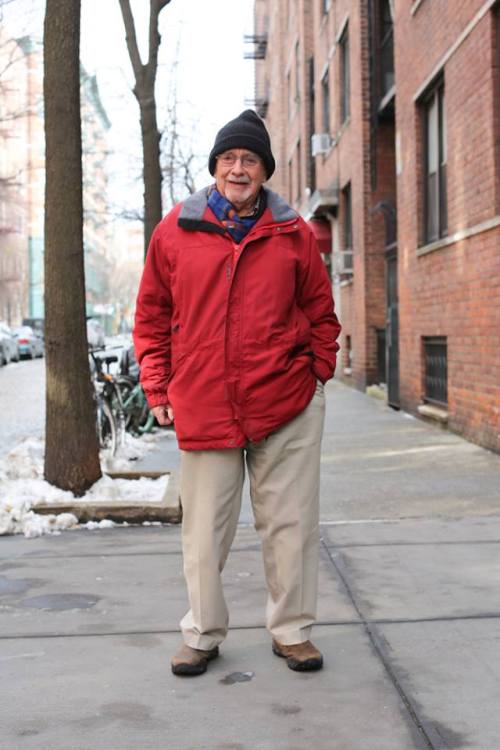
"If you could give one piece of advice to a large group of people, what would it be?"
"I’m a retired professor. Every time I’ve spoken to a large group of people, hardly anyone was listening."
